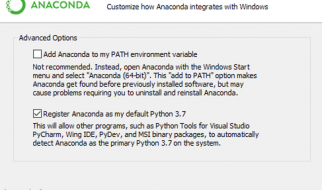 Photo credit of Anton Glavas www.antonglavas.com
Photo credit of Anton Glavas www.antonglavas.com
?I?m not here to tell you, ?It?s ok, you?ll figure it out one day,? or ?where you are is exactly where you?re meant to be? or ?trust the process.? Bullshit. If you?re here reading this article, there?s something inside you that isn?t satisfied. There?s something scratching at you, urging you to do more, and to be more ? you know you?re not living up to your full potential.
The feeling of not knowing what to do with my life is very familiar. In fact, some might say ?dissatisfaction? is my middle name. I?ve never been one to just settle for what life hands me, or to follow the pack and feel ok with that. I?m restless. Antsy. Future-focused. Searching. Deep-thinking. I tried environmental education? that wasn?t it.
I tried youth education? that wasn?t it.
I tried life coaching? that wasn?t it (although close). I tried project management? that wasn?t it. Then I finally ? finally! ? after 15 years of working in various jobs, figured out what I wanted to do with my life (at least for now): career coaching. It?s no surprise that something I?ve struggled with so much myself (figuring out what I want to do with my life), is something I want to help others with. Want a BIG HINT on what you could do with your life? Look at what you struggle with most, overcome that struggle, then help others do the same. It doesn?t have to be for your work, but I guarantee that will give a lot of meaning and fulfillment to your life. But, I digress. This article is really all about showing you a step-by-step process for figuring out what to do with your life. This is the process I take my clients through to get clarity and you?re getting it here, now, for free (yay!).
My step-by-step process for getting clarity on what to do with your life
Step 1: Figure out your ideal lifestyle

How many hours do you want to be working? How much money do you want to be making? Do you want to be employed or self-employed? What kind of environment(s) do you want to spend your time in? What kind of people do you want to be around? Where do you want to be (i.e., what city, country)? What do you want to do for fun? What do you want to do for personal growth? What do you want to do for your health? You get the idea!
Step 2: Get clear on your values

Your values are basically what?s most important to you in your life. For example, mine are: freedom, new experiences, connection, and vibrancy. You choose how you define your values. The best way to do this is to think about a time in your life (either a moment, or a day) where everything was absolutely perfect, and you wouldn?t have changed a thing. Write out the experience and what you loved about it. Then ask yourself, what are the values in there? For example, if the experience that comes to mind for you is hiking by yourself in Thailand, some of the values might be: independence, travel, adventure, and freedom.
If you?re really stuck on coming up with values, I recommend reviewing Max Neef?s list of 9 fundamental human needs. What values come up for you as you read this list? Once you have your list of values, rank them until you get it down to your top 3?5. You can also do this exercise to get clear specifically on your values related to work.
Step 3: Get to know your strengths

Your strengths are what you?re naturally good at. You might not realize you have a particular strength because it?s always come easily to you, and you may assume it comes easily to everyone else too. When we?re using our strengths, we?re most often enjoying what we?re doing ? a job that uses our strengths should be a non-negotiable in our lives. To help you get clear on your unique strengths, I wrote a separate article on how to figure out your strengths.
Step 4: Determine your skills

Your skills are different from your strengths because you learn them over time ? you aren?t born with any skills. Write out 3 lists when it comes to your skills: your soft skills (i.e., less tangible skills such as ?communication?, ?leadership?, or ?adaptability?), your hard skills (i.e., tangible skills such as ?Google Analytics?, ?SalesForce?, or ?Project Management?), and your desired skills (either hard or soft). Go through every past job you?ve had, projects you?ve worked on, volunteer positions, and extra-curricular experience and write out the skills you gained doing those things. If you?re stuck, do a Google search for skills learned in that particular type of job/experience to get some ideas.
Step 5: Identify Problems/Challenges/Opportunities

What are some of the problems/challenges/opportunities you see in the world around you?
Think about documentaries you watch, blogs you subscribe to, newspaper articles you?re drawn to, magazines or books you read, YouTube videos you watch, or topics you love to talk about ? what are the themes/topics you?re drawn to the most?
Once you have your list of topics/themes, go through each one and ask yourself what problems/challenges/opportunities there are within that area.
For example, let?s say in the first half of this exercise you find you?re most drawn to things related to food: diet, nutrition, health, wellness, and food security are all topics of interest.
When it comes to health, some of the problems/challenges you identify might be obesity, diabetes, low energy, anxiety, and depression.
Some of the opportunities might be public health education, functional medicine, supplements, or cleaner diets.
From here, if you?re wanting clarity around employment or volunteering (rather than self-employment or something else), you can start to research organizations that are addressing these issues.
Going back to the food example, you might seek out supplement companies, health food stores, healthy meal delivery services, functional medicine clinics, or government branches related to public health.
Compile a giant list of all the organizations working on the problems/challenges/opportunities you?ve identified.
Now, you might be thinking this exercise is useless because the problems/challenges/opportunities you identified are in one specific area and you already know you don?t want to become an expert in that area.
However, there are a huuuuge variety of things you could do in any area you?ve identified that have nothing to do with the subject topic.
For example, if you identified an interest in healthy meal delivery, it doesn?t mean you need to become a nutritionist or expert in healthy meals. A healthy meal delivery service needs all kinds of people with a variety of strengths and skills: sales, marketing, project management, administration, web/app development, product design, UX/UI design, bookkeeping, accounting, people management, customer support, lawyers, and probably a number of other things I?m not thinking of!
Step 6: Mush Everything Together

Now, it?s time to put everything together and come up with some tangible ideas for what to do with your life (at least for now ? because it?s probably going to change! Good news is you can re-visit this process at any time.)
If you?re going the employment or volunteer route:
Look at the list of organizations you have and do some research to identify challenges those organizations have to which you could contribute your strengths/skills and that meet your values and lifestyle goals.
For example, say you scoped out some health food stores and you have really strong analytical skills ? you might be suited to be a market research analyst or data analyst at a health food store.
Or say you scoped out some companies that sell supplements and you have really strong people skills ? you might be suited to be on the sales team or manage the customer success team at a supplement company.
If you?re going the self-employment route:
Look at the problems/challenges/opportunities you?ve identified and consider: what are the ways you could address those problems/challenges/opportunities using your strengths, skills, and values?
Brainstorm away!
Step 7: Research Your Options

Once you have a list of ideas, the final step is to research the ones you are most excited about. Do what you need to do to get that last bit of clarity:
- Take a free online course.
- Research the employment outlook for that field. (Make sure it won?t be taken over by robots!)
- Check out the education requirements.
- Research the expected salary.
- Conduct some informational interviews. (Check out my article on How to Request, Conduct, and Follow-up on an Informational Interview.)
- Volunteer or take on a ?beta-test? client in exchange for feedback.
Before wrapping up, I want to acknowledge that not everyone has the freedom to do what they choose in life and live out their desires. I?ve really written this article for those of us who are lucky enough to have that choice ? let?s not take our freedom to do what we want in life for granted. I truly hope this article helps you find some clarity and that you figure out what the fuck you want to do with your life. Hugs, -Rebecca
P.S. ? Want more insights into what to do with your life? I share regularly on my Instagram page. Come give it a follow!


